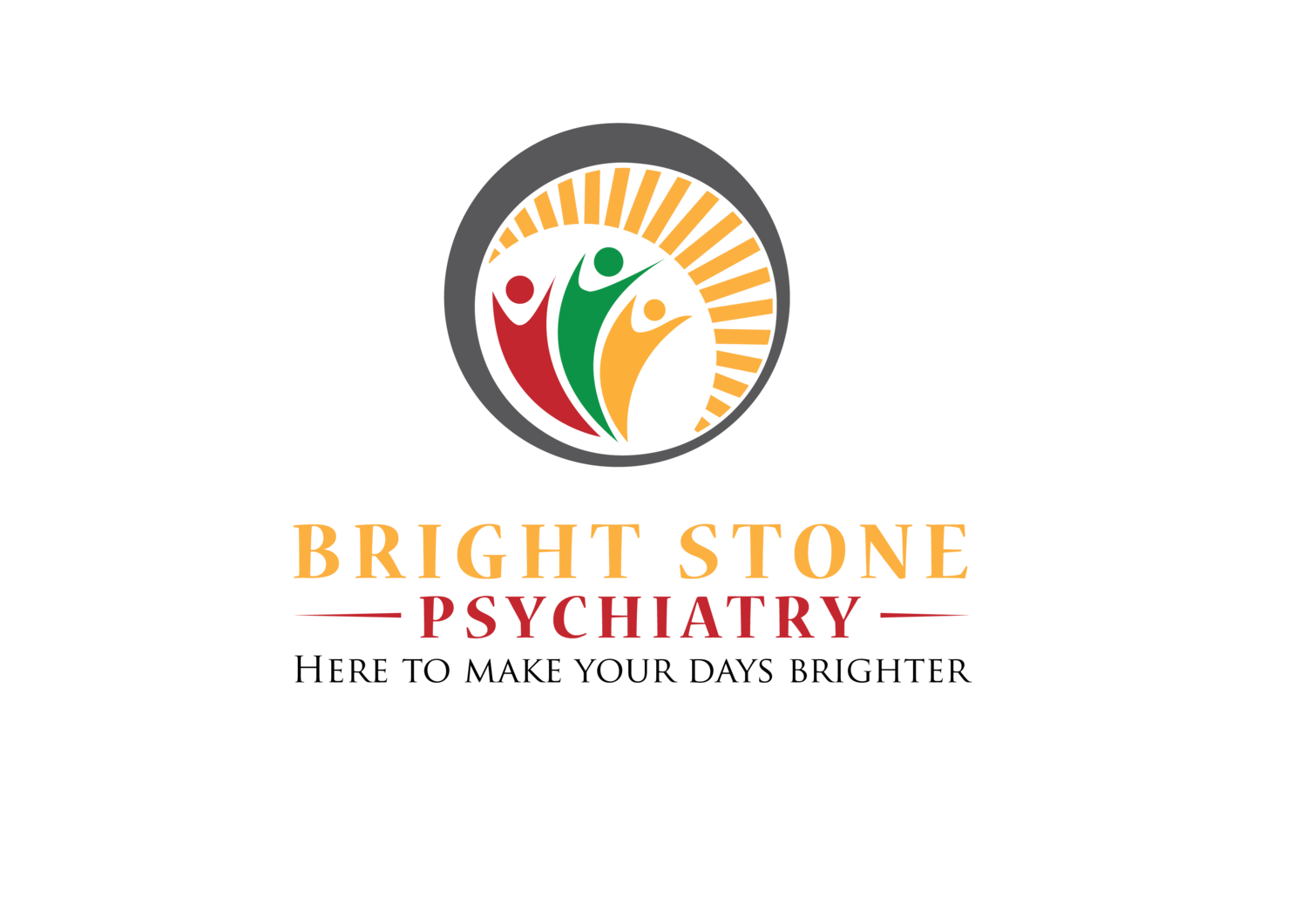Mental Health in Teens: What Parents Should Know and How to Help
Teenagers are going through one of the most transformative periods of their lives, and this can often come with significant emotional and mental challenges. As they navigate the complexities of adolescence, mental health issues such as anxiety, depression, and stress are unfortunately common. However, understanding the signs, knowing how to respond, and providing the right support can make a tremendous difference in helping your teen through these tough times.
Mental Health In Teens
At Brightstone Psychiatry, we understand how important it is for parents to be equipped with the knowledge and tools to support their teens' mental health. In this blog, we’ll explore the most common mental health challenges teens face, how to recognize the signs, and practical ways parents can help.
Common Mental Health Issues in Teens
Teenagers often experience significant changes in their brains, hormones, and social environments. These changes can trigger emotional struggles that are sometimes misunderstood. Here are some of the most common mental health challenges teens face:
Anxiety:
Anxiety in teens often manifests as excessive worrying, nervousness, or fear about daily situations, school performance, friendships, or the future. Teens may also experience physical symptoms such as headaches, stomachaches, or trouble sleeping.Depression:
Teen depression can sometimes be mistaken for normal teenage mood swings. Symptoms include persistent sadness, irritability, loss of interest in activities once enjoyed, changes in appetite or sleep patterns, and withdrawal from social situations.Stress:
Between school pressures, social media, extracurricular activities, and the quest for independence, stress is a significant factor in many teens’ lives. While a certain level of stress is normal, chronic stress can have a negative impact on mental health.Body Image Issues:
The desire to fit into social norms and societal beauty standards can lead to body dissatisfaction, which is closely tied to mental health challenges like eating disorders or depression.Substance Abuse:
Teens may turn to substances as a way to cope with overwhelming emotions. If left unaddressed, substance abuse can escalate and complicate existing mental health issues.
How to Recognize the Signs
It can sometimes be challenging to differentiate between typical teenage behavior and signs of mental health issues. However, it’s important for parents to stay vigilant and look for certain warning signs that might indicate their teen needs support:
Changes in behavior or personality: If your teen has become more withdrawn, irritable, or hostile, it may be a sign that something is troubling them emotionally.
Declining academic performance: A sudden drop in grades or lack of motivation to attend school may signal underlying issues such as anxiety or depression.
Social withdrawal: If your teen isolates themselves from friends or family, it could indicate they are struggling emotionally.
Changes in eating or sleeping habits: Significant changes in appetite or sleep patterns may be signs of mental health struggles such as depression or anxiety.
Physical complaints: Frequent headaches, stomachaches, or other physical symptoms with no clear cause can sometimes be related to stress or anxiety.
Expressing hopelessness or worthlessness: Statements like "I can’t do this anymore" or "Nobody cares about me" should be taken seriously, as they may signal suicidal thoughts or depression.
How Parents Can Help
Start a Conversation:
The first step in supporting your teen is opening the lines of communication. It’s important to approach them with empathy, without judgment, and let them know you’re there to listen. If they’re not ready to talk, don’t push them, but reassure them that you’re available whenever they feel comfortable.Validate Their Feelings:
It’s easy to dismiss your teen’s concerns by saying things like "It’s just a phase" or "You’re overreacting." However, it’s crucial to acknowledge their feelings and let them know that their emotions are valid. Showing understanding can help them feel heard and supported.Promote Healthy Habits:
Encourage your teen to develop a routine that includes regular physical activity, a balanced diet, and sufficient sleep. These healthy habits can have a positive impact on their mental health. Limit screen time and encourage family time that helps your teen feel connected.Get Professional Help:
If you notice signs of mental health struggles in your teen, consider seeking professional help. Brightstone Psychiatry offers specialized mental health support for teens and their families. Whether your teen is struggling with anxiety, depression, or other mental health challenges, professional therapy and guidance can help them navigate these difficult emotions. Early intervention can make a significant difference in their well-being.Be Supportive, Not Overbearing:
While it’s important to be involved, it’s equally important to respect your teen’s need for independence. Encourage them to participate in decision-making about their treatment and respect their privacy, which can foster trust and openness.Educate Yourself and Your Teen:
Understanding mental health is key to providing the right support. Consider educating yourself on the signs and symptoms of mental health issues in teens. You might also want to share resources with your teen that can help them learn more about managing their mental health, such as books, websites, or videos.Create a Safe Environment:
Make sure your teen feels safe talking about their mental health without fear of punishment or ridicule. Establishing a safe space where they can express their thoughts and emotions freely can build trust and make them feel supported.
Conclusion
Mental health is an essential part of overall well-being, and it’s vital for parents to be proactive in recognizing and addressing mental health concerns in their teens. By educating yourself, opening the lines of communication, and seeking professional help when needed, you can play a crucial role in helping your teen overcome challenges and thrive emotionally.
If you’re concerned about your teen’s mental health or would like guidance on how to support them through difficult times, Brightstone Psychiatry is here to help. Our team of professionals offers specialized support for teens facing anxiety, depression, and other mental health issues.
Contact Us Today:
Brightstone Psychiatry
832-378-8282
hello@brightstonepsychiatry.com
https://www.brightstonepsychiatry.com
Let’s work together to ensure your teen’s mental health is nurtured and supported for a brighter future.

